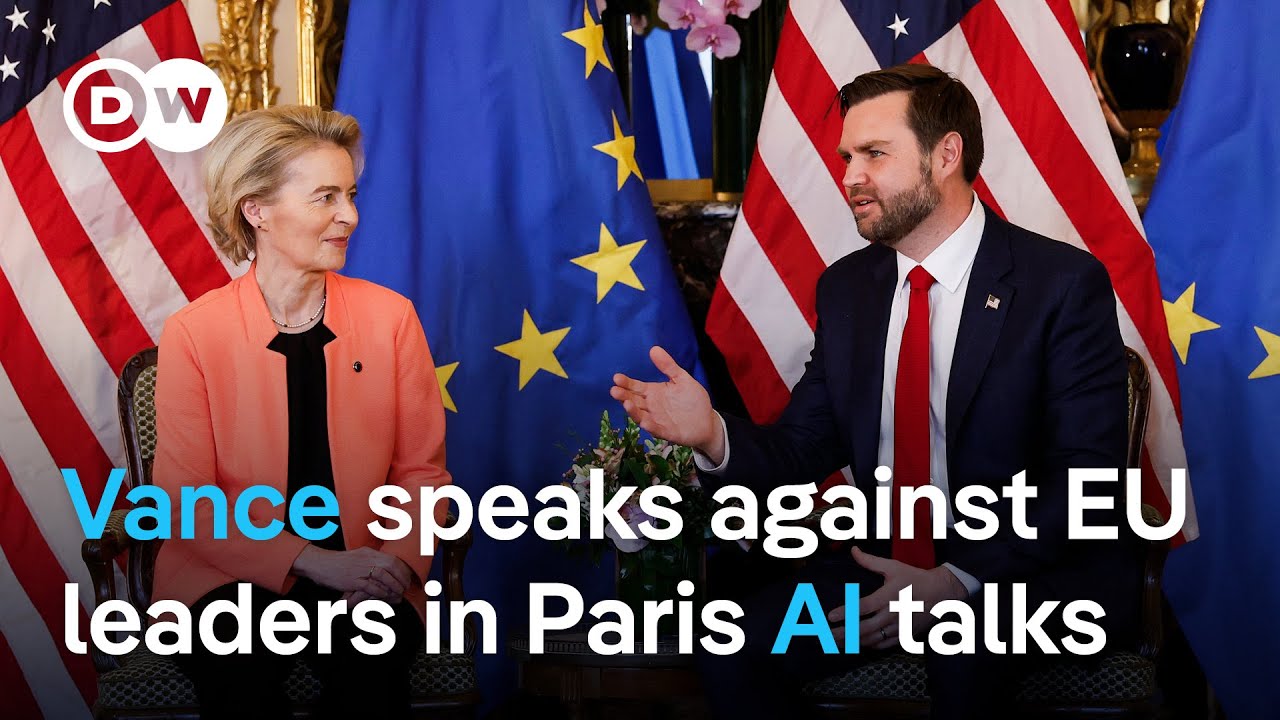In a recent meeting, U.S. Vice President JD Vance warned European leaders against imposing significant regulations on artificial intelligence, arguing that excessive rules could hinder innovation and economic growth. This stance contrasts with Europe’s push for ethical guidelines and safety measures, highlighting the ongoing challenges in aligning regulatory approaches between the U.S. and Europe.
In a recent meeting at the White House, Jordan’s King Abdullah II is facing pressure from U.S. President Donald Trump regarding the resettlement of Palestinians from Gaza in Jordan. The proposal has sparked significant backlash within Jordan, where protests erupted in the capital, Amman, against the idea of relocating Palestinians. Many Jordanians believe that Palestinians should remain on their land, emphasizing that the responsibility for Gaza lies with its people. King Abdullah is also under pressure to maintain Jordan’s longstanding support for a two-state solution and to reject any plans that would lead to the annexation of Palestinian land.
Jordan is already home to over 2 million Palestinians, and the country has recently taken in more than a million Syrian refugees, which has strained its resources. The United Nations estimates that there are around 2.2 million registered Palestinian refugees in Jordan, with the actual number potentially reaching 3 million. The political landscape in Jordan is delicate, as King Abdullah balances domestic opposition to U.S. proposals with the need to maintain a good relationship with the United States, a longtime ally.
In parallel, U.S. Vice President JD Vance addressed an AI conference in Paris, warning European leaders against imposing significant regulations on artificial intelligence. He argued that excessive regulation could stifle the burgeoning AI industry, which is crucial for innovation and economic growth. Vance emphasized the need for the U.S. to foster AI development while also preventing adversaries from using the technology for surveillance and threats. His remarks reflect a broader U.S. strategy to maintain leadership in the AI sector.
Vance’s speech highlighted a stark contrast between U.S. and European approaches to AI regulation. While the U.S. advocates for minimal regulation to encourage growth, European leaders are calling for ethical guidelines and safety measures to address potential risks associated with AI technology. The European perspective includes concerns about hate speech and the need for regulations to ensure that AI systems do not propagate harmful content. This divergence in regulatory philosophy underscores the challenges of finding common ground between the two regions.
As the summit in Paris progresses, it remains uncertain whether the U.S. and European leaders will reach a consensus on AI regulation. While there may not be a binding resolution, there is a mutual interest in advancing discussions and finding a middle ground. The ongoing negotiations reflect the broader geopolitical dynamics at play, with both sides seeking to assert their positions while navigating the complexities of international collaboration in technology development.
